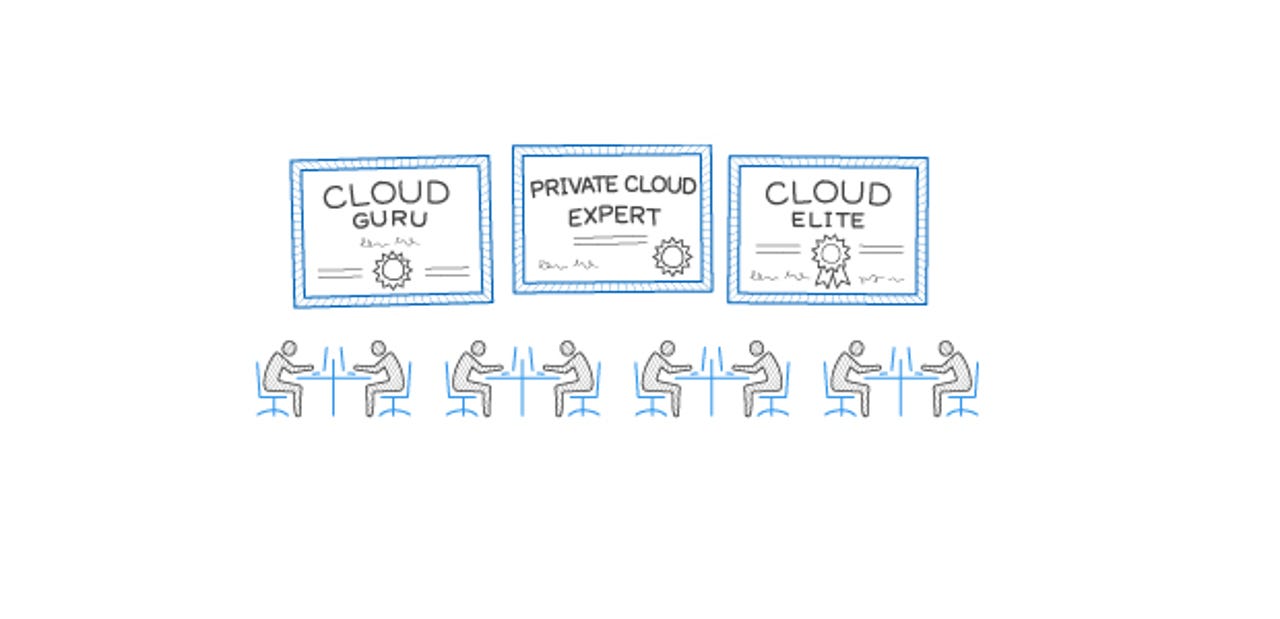With OpenCenter, Rackspace eyes 'very big opportunity'


Yesterday, American IT hosting company Rackspace announced a new feature it calls "OpenCenter," a user interface and portal for the company's private cloud offering.
The idea is to create a centralized place for cloud management, but the development also represents a significant stategic move for the company, which sees OpenCenter as its key into companies' datacenters.
I spoke with Scott Sanchez, director of strategy for Rackspace's private cloud business, to understand the scope of the shift. Below is an edited and condensed version of our conversation.
ZDNet: Tell us how OpenCenter came about.
SS: We've been adding functionality to our private cloud product, which we launched in August of last year. We don't think of this as a version release because we are on a continual development cycle.
Everything you see in this release is driven by customers. We're turning enterprises into service providers.
OpenCenter is a control center for the cloud. It's a decision engine, it's an orchestration platform. Until now, it's been a very manual process. With OpenCenter, we baked all the rules in there so that it's one click.
We also added host operating system choice — it's not just Ubuntu — in OpenCenter: Red Hat Enterprise Linux, CentOS.
Enterprises should have one cloud strategy, whether they have a public or private or hybrid cloud. All of those things have to work together to make it seem comfortable. We're going to spend the rest of this year educating customers on that.
We're bringing public cloud tendencies to the enterprise datacenter. Some days we do 10 code updates a day, pushing to the cloud, live.
You'd be surprised how many phone calls we get from CIOs saying, "Help us become a service provider." That is a conversation we have every week with a large name-brand company. That's a flip from a year ago, when people were calling us and asking us to build them a cloud. They would prescribe to us what they wanted, or thought they needed. That is what we affectionately refer to as "crazy cloud" — one-off, not supportable. We have a lot more to offer.
ZD: Customers tend to not know what they want in terms of new features; they usually focus on fixing what they don't like about the existing environment. Complaints, in other words. What were they telling you that gave rise to OpenCenter?
SS: Back in August, we said "OK, what are people complaining about now?" People said OpenStack is too hard to install and get running properly. So we released an installer that could boot up and operate at a small scale. The second update that came out a few months ago — we're basically on a three-month release cycle — we added storage and volume. Getting us to minimal viable product. So customers have been using this in real life. They're getting comfortable at the [notion] that we know what we're doing. So we're getting calls to operate it.
That's the business that Rackspace wants to be in. Let us be in the customer's datacenter and the control to operate it but [offer] the visibility and management so that they get comfortable handing over the keys.
They have to trust us that we've figured this stuff out. OpenCenter does a lot of that for us.
ZDNet: That's a big shift.
SS: A year ago, they thought they knew better than we did. We didn't have a public cloud out in the market. We started off in a model that was essentially consulting; over time, we got a little more prescriptive. We put out a reference architecture. Some books. Now we're in this model where you can have any color you want as long as it's black — you can have the Rackspace cloud, or you can go somewhere else. We're hoping that there are more enterprises that want to be service providers than we originally thought — that are thinking, "Why am I doing this myself?"
Everybody that's out there will come build one for you. There are really smart consultants out there that will build you a spec cloud; others are putting tools and configuration management systems in there. Some people are selling converged infrastructure. What makes us truly different is that we run the stuff at scale and we'll actually operate it. No one else is willing to do that because it's hard. That's the reason our phone is ringing off the hook. They download ours and realize "Whoa, this thing just works."
We feel we're really well-positioned. We're really excited about what this opportunity gives us. For the first time, we get access to the 90 percent of the world's servers that are in customer datacenters. We don't have to build, operate and staff a datacenter before we can start to sell fanatical support.
We think that this is a very big opportunity for us going forward. It's an entirely different business for Rackspace because it's in different datacenters that we're servicing, so there are lots of learnings there. It's an easy transition in terms of product, harder in terms of market perception.
ZD: Which explains why you're spending the rest of the year educating customers.
SS: The OpenCenter is the platform through which all of the future things are enabled. We're working very closely with our public cloud team to deliver network integration — a lot of the [software-defined networking] work in our public cloud will be brought to our private cloud. Every enterprise is asking about portability.
And then there's the [continuous improvement] model. The public cloud is sometimes updated multiple times a day. We're going to let our enterprise customers guide us in terms of how often they want updates. You'll see that become a dial that the customer can tweak in OpenCenter.